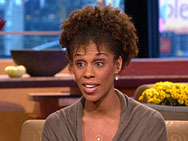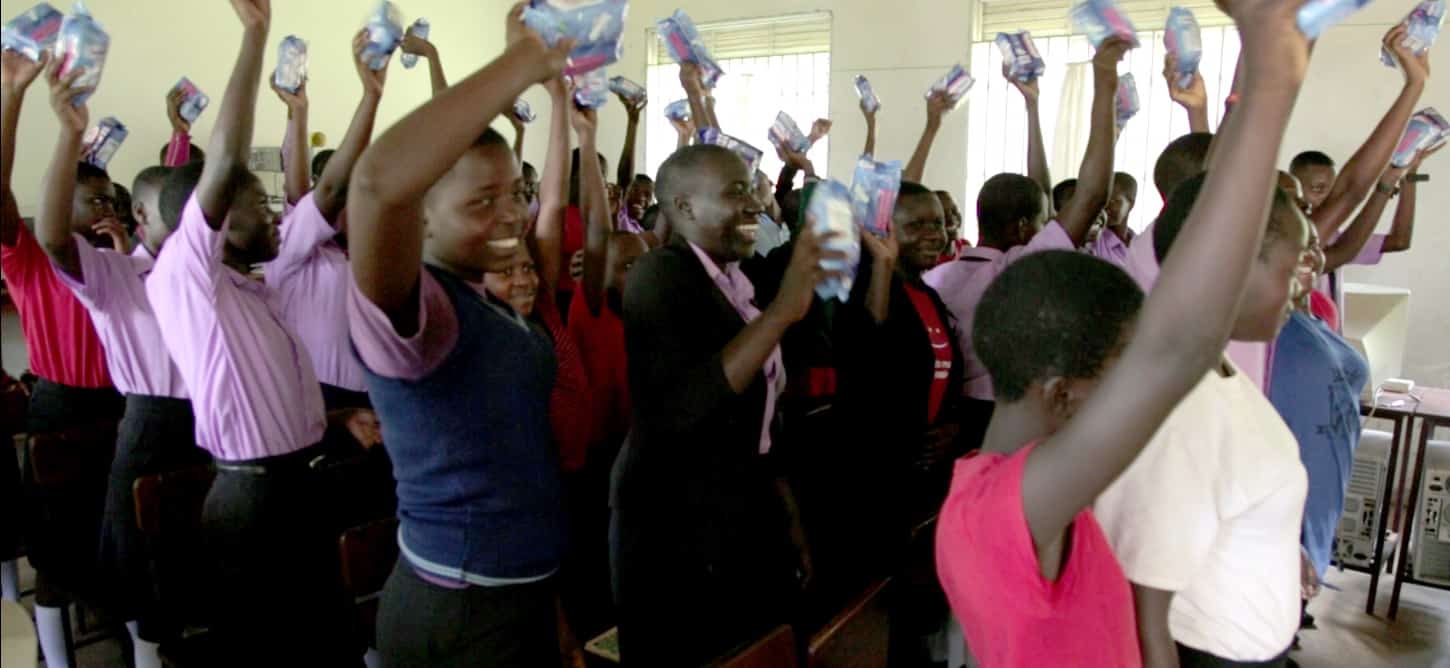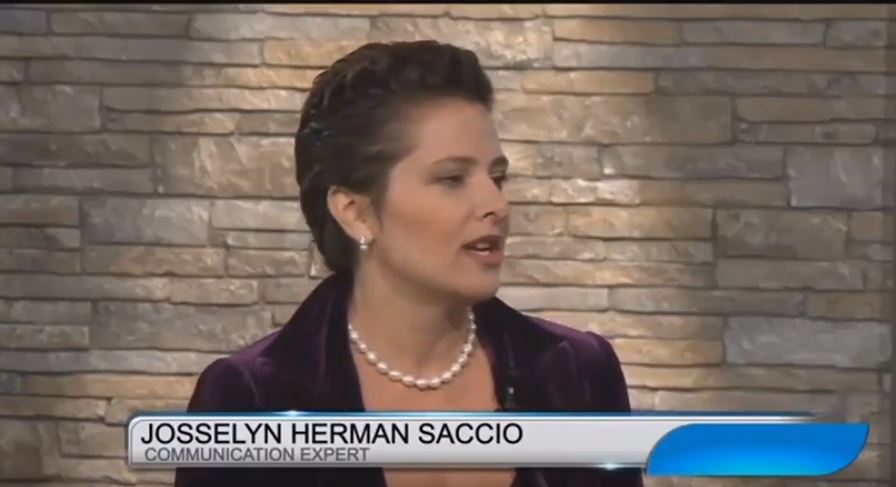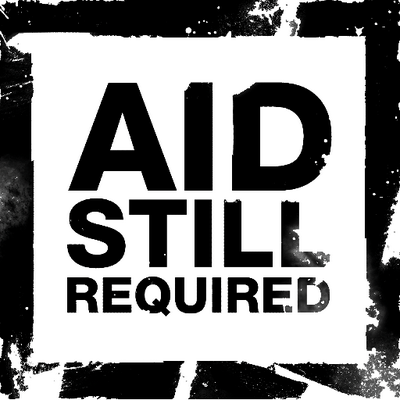In the Landmark Forum, aspiring Los Angeles Actor Sarah Culberson realized that she was terrified to find her biological father. Culberson was adopted and grew up in West Virginia, and in the Landmark Forum she decided that she would find him. The story of what happened next was told on CNN, and written about in Reader’s Digest.
The Lost Princess – A phone call from 7,000 miles away changed everything.
Reader’s Digest, November 2007
By Kenneth Miller
In April 2004, Sarah Culberson got a call she’d spent nearly 30 years waiting for. She was eating dinner with a friend at a noisy beachside café and could barely hear the person on the other end, 6,850 miles away, in Africa.
“This is your father, Joseph Konia Kposowa,” said the voice. Sarah asked him to hold on, then hurried down the crowded street in search of privacy. She found it in a vintage clothing store, among racks of faded dresses.
“Please forgive me,” begged the caller. “I didn’t know how to find you.”
“Please forgive me,” Sarah replied. “I’ve been blaming you my whole life. I’m not going to anymore.”
Sarah, then 28, had had no previous contact with her birth parents; she’d assumed they wanted it that way. Her adoptive parents, Jim and Judy Culberson, had told her what little they knew: Her biological father had been an exchange student from Sierra Leone, attending Salem College in West Virginia. He dated a young white woman who worked at West Virginia University. When she became pregnant, they decided to give the baby up. The couple separated, and Sarah’s father returned to his homeland.
Now he was urging his daughter to come visit. “As a member of a royal family,” he told her, “you could be chief here someday.”
At that moment, Sarah knew her life had changed forever. From now on, she would be inextricably connected to a small, war-ravaged village halfway across the globe.
Sarah Culberson grew up in West Virginia as a normal American girl. Jim, a professor of neuroanatomy at WVU, and Judy, a special ed teacher, showered their youngest daughter with love and encouragement. Sarah caught turtles in the woods behind the house, rode her bike around the neighborhood, and enjoyed vacations with her parents and two sisters.
Still, she could never quite shake the sense that she didn’t belong—in her fair-haired family or in Morgantown, a leafy college community with few minorities. Worse, she felt the simmering anxiety shared by many adopted children: If one set of parents abandoned you, why wouldn’t another? “I would think,” she says, “I’m gonna be a really good kid so they don’t ever want to give me back.”
Sarah was an A student, a star athlete, student body president and homecoming queen. “She really enjoys people,” says Judy. She majored in theater at WVU and went on to graduate school at the American Conservatory Theater in San Francisco.
It was there, in 1999, that she took the first step toward investigating her origins. Because of a clerical error, Sarah’s adoption papers listed the names of her birth parents, but she wanted to know more—“who I looked like, medical history.”
When she told Judy that she was ready to try to track down her birth mother, Judy divulged the one piece of information she’d kept from her: The woman had died ten years earlier, of cervical cancer. Disheartened, Sarah found herself hesitant to then pursue a search for her biological father.
In 2001 she moved to Los Angeles and landed some bit parts in films and TV. Between gigs, she taught dance to seventh and eighth graders. But as she reached her late 20s, she began to feel a building frustration. Whenever she grew close to a man, her fear of abandonment drove her to sabotage the relationship.
Early in 2004, Sarah took a leadership training course. During one session, the instructor asked, “Where are you holding back in your life? Tell the person sitting next to you.”
Sarah turned toward an old friend named Art. “I’m terrified of finding my biological father,” she confessed. Art assured her that the search could bring her peace and said he knew a private investigator who could locate her father for less than $100.
The detective, after just three hours of sleuthing, turned up a Joseph Kposowa in Maryland. Sarah labored over an introductory note and nervously sent it off. Soon afterward, she got a phone call from a woman with a lilting accent. “Sarah? This is Evelyn, your auntie. I was there when you were born.”
Sarah broke down in sobs. Once she’d composed herself, she learned that this Joseph was actually her uncle. He then got on the phone and asked, “Do you know you are a princess?”
 Sarah, he explained, belonged to a ruling family of the Mende tribe in southern Sierra Leone, a nation of six million on Africa’s Atlantic coast. Her grandfather had ruled a chiefdom with 36,000 subjects based in the village of Bumpe. When the old man died, Sarah’s father could have nominated himself for the office, but he opted to keep his job as headmaster of the local high school. Another uncle was now chief.
Sarah, he explained, belonged to a ruling family of the Mende tribe in southern Sierra Leone, a nation of six million on Africa’s Atlantic coast. Her grandfather had ruled a chiefdom with 36,000 subjects based in the village of Bumpe. When the old man died, Sarah’s father could have nominated himself for the office, but he opted to keep his job as headmaster of the local high school. Another uncle was now chief.
The information made Sarah’s head spin. But it wasn’t until her father called, two weeks later, that she began to understand its full significance.
While Sarah was attending school and starting her career, Joseph Konia Kposowa was surviving one of Africa’s most brutal civil wars. Between 1991 and 2002, guerrillas of the Revolutionary United Front (RUF)—many of them abused children or young teenagers—sowed terror across Sierra Leone. An estimated 50,000 people were killed; thousands lost limbs to the machete-wielding rebels.
Joseph had started a new family before the war began. In 1994, when the insurgents entered Bumpe, he fled with his wife, their two young children and a handful of relatives. The group spent four years hiding in nearby towns, crammed into small houses with dozens of other refugees.
Overwhelmed by Emotion
When a rebel retreat allowed Joseph to return to Bumpe, he found devastation. The RUF had burned down much of the village, including the Kposowa family compound. One of Joseph’s sisters had been killed in the fire. At Bumpe High School, the rebels had taken the zinc roofs to make weapons, used the desks and books for firewood, and smashed the lab equipment and dormitory cots. Founded in 1963 by Joseph’s father, the school had once been a magnet for 600 students from across Sierra Leone and neighboring countries. Now it was a charred hulk. Joseph and his neighbors began rebuilding, but progress was slow.
When his relatives in America forwarded Sarah’s letter, in 2004, it was a ray of light after a long stretch of darkness. Joseph had long dreamed of reconnecting with the daughter he had forfeited, but he’d had no idea where to begin looking. Now, somehow, she had found him.
He used his cell phone to call Sarah, and when he heard her laugh, it reminded him of the woman he’d loved so many years before. Joseph told Sarah how he and her mother had agonized over giving her away, and how they’d finally decided it would be irresponsible for a couple in their situation—a penniless freshman on a student visa and the cafeteria worker he’d been dating—to try to raise a child together.
He also explained the line of chiefly succession and recounted the tragedies suffered by Sarah’s kinfolk. “When she said she’d come visit,” says Joseph, speaking on the phone through the hiss of intercontinental static, “it was one of the happiest moments of my life.”
That December, after a 20-hour plane ride, Sarah, accompanied by her good friend and acting coach, John Woehrle, landed at a tiny airport near Freetown, Sierra Leone’s capital. Her father, whom she’d always imagined as tall and exotically handsome, stood by the baggage carousel. He was, in reality, a small man with a sensitive face. “I looked in his eyes,” Sarah says, “and he seemed so vulnerable.”
The two shared a long, warm embrace. Seeing—and touching—seemed more urgent than talking. Joseph seized his daughter’s hand, and they went to meet the dozen family members waiting outside.
The night was dark, and Sarah was too overwhelmed by emotion to register much about her surroundings on the way to her hotel. The next morning, she, Woehrle and her father set out in Joseph’s battered Range Rover. Then she saw it all: the city’s squatter camps and bullet-pocked buildings, the ragged children selling oranges along the road, the lush countryside carpeted with trash.
Bumpe, five hours away, was a cluster of thatch-roofed houses surrounded by fields of yam and cassava. At the edge of town, hundreds of locals swarmed the Range Rover. Joseph translated the song the villagers were singing: “Sarah, you have come to your homeland. Welcome home.”
“This Is My Family”
As she wiped away her tears, Sarah stepped from the car and swayed to the music. The women in the group led her to a red-dirt plaza shaded by huge trees, where she was seated at a banquet table with her father, her uncle the chief and other dignitaries. The speeches and ceremonial dances lasted well past sunset.
During her 17 days in Bumpe, Sarah bonded with Joseph’s wife, Mary, as if they were old girlfriends. Sarah’s half sister, Jeneba, then 20, and half brother, Hindo, 15, proved to be bright and thoughtful. Joseph, it turned out, possessed a talent for impressions and foreign accents. (British colonial to bartender: “Gin on ice? Ab-so-lewtly!”) Relatives dropped by often, bearing live chickens because Sarah had said chicken and rice was her favorite dish. Only later did she learn that poultry was a rare delicacy, reserved for the most honored guests.
“I’d spent most of my life feeling like I needed to do something really great to be accepted,” says Sarah. “When I got to this village, there was complete acceptance and love.”
There was also great pain. Sarah met adults and children who’d lost limbs to the rebels. One of her aunts, who’d survived an attempted decapitation, was missing a chunk of her neck. Clean water and modern medicine were in short supply. Among Bumpe’s 2,000 residents, no one but her father and uncle had access to electricity, and even they could afford to run their generators only on special occasions. Joseph’s house was made of cinder blocks rather than mud bricks, but the mosquitoes made no distinction, and he and his son—like many of the villagers—suffered recurring bouts of malaria. During Sarah’s two-and-a-half-week visit, three funerals were held.
At her father’s school, 200 students were pursuing their studies in roofless classrooms, determined to improve their lives. “These people had been through hell,” Sarah marvels, “and they were like, Okay, what’s next? Let’s get our education going.”
Sarah returned home to Los Angeles wrestling with questions of responsibility (especially when distant kin called from Africa, asking for money). “She was trying to figure out her role in all this,” says John Woehrle. How much time, energy and cash could a struggling actress and part-time dance instructor spare?
Woehrle agreed to help with the cause. He and Sarah established the nonprofit Kposowa Foundation to channel aid to Bumpe, and they set as their goal raising $200,000 to restore its high school. Sarah raised the first $850 with a carnival at the school where she taught dance. A concert of African and Appalachian music at West Virginia University brought in $16,000; her adoptive parents helped organize the WVU event and now work regularly with the foundation.
Last March, Sarah and Woehrle returned to Sierra Leone to set up an NGO enabling the villagers to run their own reconstruction projects. By then, the foundation had funneled $24,000 to Bumpe High School; the money went toward new roofs and windows, library books, and bright paint on the classroom walls. Today attendance has risen to 450. Dorms are being repaired, to be followed by improvements on the home economics building.
Sarah hopes the work will be mostly finished when she returns to Bumpe in December with her adoptive parents. “Sarah likes both of her fathers quite a bit,” says Jim Culberson with a smile, “and she thinks we should meet.”
Joseph Kposowa agrees. “I owe them a lot,” he says of the Culbersons. “The way everything has worked out, it’s a very big blessing.”
No one feels more blessed than Sarah, who never expected she’d be a key supporter of an African village. “Sometimes I think, I don’t know how to do this,” she says. “But what I do know is that this is my family.”
To see other video’s about Sarah Culberson, visit you tube.



9 comments
[…] start of an in-progress feature length documentary which tells Culberson’s story. Also read Landmark Education News’ previous story about Sarah Culberson, and be sure to visit the the Bumpenya […]
[…] to help rebuild the town (See Landmark Education News’ previous stories about Culberson here and here). This video on the Kposowa blog shows the difference the reconstruction of the Bumpe High […]
[…] story has been recounted in other stories on Landmark Education News – read more details here, here and here. To buy a copy of Culberson’s book, go to your local book store or find it on […]
Amazing!
Morgantown native and los angeles resident…need to reconnect with sara…exec dir of np w common purpose
Great story!
Princess Sarah Kposowa, your quest, determination to seek your roots paid off. you are a great African daughter and Africa needs you and your likes out there. I am proud of you.
[…] After making a promise to her friend to continue her search, she discovered that her biological father was alive and living in Sierra Leone. Even more surprisingly, she discovered that her father was a chief of the Bumpe province and that made her a princess. After speaking to her biological father for the first time, she soon found herself traveling to Sierra Leone. It was a tale so remarkable that it got the attention of CNN. […]
[…] After making a promise to her friend to continue her search, she discovered that her biological father was alive and living in Sierra Leone. Even more surprisingly, she discovered that her father was a chief of the Bumpe province and that made her a princess. After speaking to her biological father for the first time, she soon found herself traveling to Sierra Leone. It was a tale so remarkable that it got the attention of CNN. […]